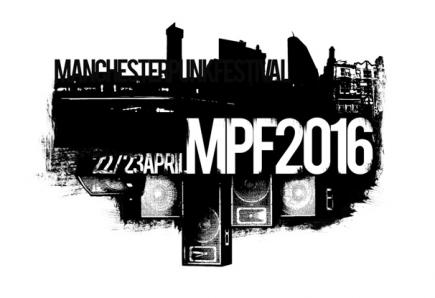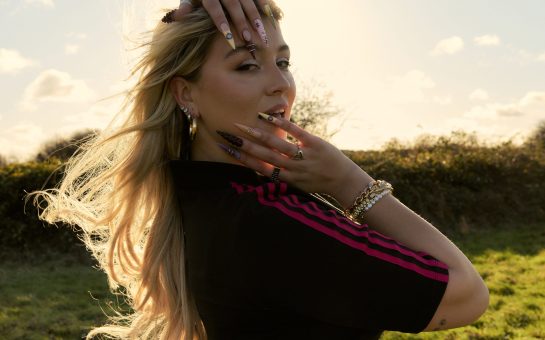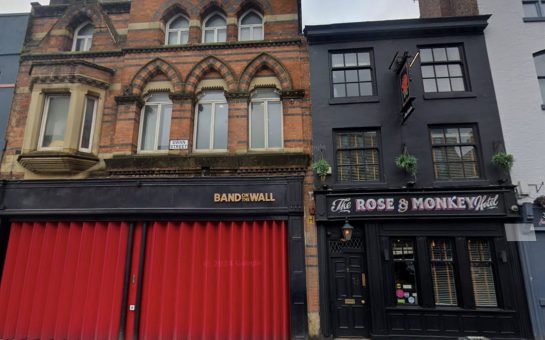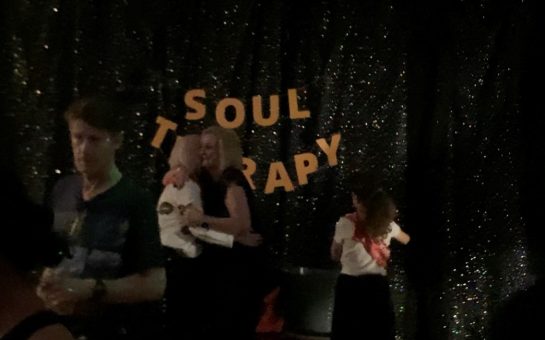Amongst the closure of gig venues, the cancellation of events, and the near demise of the city’s underground music scene, Manchester Punk Festival is bucking the trend and thriving – returning in 2016 for its second year running.
The festival looks set to pack out multiple venues across the city with some of the most well-known names in the punk scene on April 22 and 23.
Headliners include Edinburgh’s Oi music legends Oi Polloi and London based Sick On The Bus. The eclectic line-up spans established international punk bands as well as young bands and local acts.
The first batch of super early bird tickets went on sale on August 31 and sold out within just over 24 hours – more tickets are on sale now for £18 per person.
MM chatted to Tim ‘Bev’ Bevington, of TNS Records – one of the promoters and labels behind the festival – about the overwhelming show of support.
He said: “We were absolutely blown away by the amount of people that supported us both last year and by buying the super early bird tickets.”
The desire for a festival such as MPF is understandable when you consider the city’s musical history.
There is a fair argument for Manchester being the birthplace of DIY punk music – home-grown punk icons Buzzcocks released the first successful record with their Spiral Scratch EP in 1977.
However, the festival’s success does not paint the whole picture of DIY punk in Manchester at the moment.
Although Bev described the scene as ‘thriving’, he also highlighted the struggles it has faced due to the recent closure of a number of small venues across the city.
The most notable venue closures to impact the scene were The Ducie Bridge – which had asserted itself as the home of DIY punk over recent months – in August and The Roadhouse two months earlier.
Both were known for putting on DIY gigs for young bands.
Ian ‘Tree’ Robinson who works with Anarchistic Undertones – another of the promotion companies that organises MPF – shared Bev’s views.
He said: “It’s not just Ducie, places like Kraak, Star & Garter and others have also felt the pinch of gentrification over recent years and there’s nothing any of us can do about it other than searching for new spaces to use.”
There is a clear problem – the closure of smaller venues threatens the opportunities for young bands to perform and establish themselves and it is these young bands that the DIY punk scene depends upon.
As the venues close down, and the cost of putting on gigs in the remaining places increases, so the more underground music is being pushed out of the city centre.
Bev said: “The closure of the Ducie Bridge has definitely highlighted how it is getting harder to find a cheap central venue for small gigs.
“With the planned development around Oxford Road Station, I can’t see things improving.”
The promoters the festival – TNS Records, Anarchistic Undertones and Moving North – aim to combat this trend, providing a central platform for these bands, as well as encouraging people to listen to and get involved with Manchester’s DIY music scene.
The event will take place across venues primarily in the Oxford Road area, with events at Sound Control, The Thirsty Scholar, Zombie Shack, Zoo and Retro Bar.
The success of MPF is evidence of a vibrant and hard-working underground punk movement in Manchester that is defying the pattern set by the closure of performance spaces.
Accessibility for all is central to the ethos of DIY punk.

MPF2016: Manchester Punk Festival will take place across a number of city centre venues (©Andy Davies)
Significant emphasis is placed in treating the established bands and the younger bands alike.
Of primary concern is the maintenance, each year, of affordable ticket prices.
Speaking to the promoters and labels from within the scene, it is clear that a sense of community and involvement is paramount.
Of his time involved with DIY punk at The Ducie Bridge, Ian said: “I spent every minute I had spare in there helping with whatever I could, booking promoters in, bar work, renovating the venue upstairs, all sorts of different things.”
He was eager to point out that this co-operative community mentality extends beyond musicians, promoters and venues.
Local designers, artists and printers are all involved in the creation of MPF.
Kieran Kelly of Moving North told a story about making some of his closest friends at a DIY gig at The Star & Garter on the day he first moved to Manchester.
But he fears for the possibility of such positive impact of a music scene on individuals in the future.
He said: “I worry if any venues like that are going to host experiences like that moving forward.”
So MPF, and the DIY scene it represents, is not purely about putting on gigs.
Also important is the continuation of a community of like-minded musicians and music fans having an opportunity to do what they love.
The dedicated response to the threat of venues becoming increasingly inaccessible, spearheaded by larger events like MPF, ensures that those involved are confident that the future remains positive for DIY punk in Manchester.
Andy Davies – the artist behind the festival’s logo, and Bev’s co-worker at TNS – told MM: “Hopefully MPF can also introduce people to the wide amount of great bands that are active in the underground punk scene in the UK and encourage people to check out gigs throughout the year helping these venues to stay open.”
In the face of the closures the primary focus remains, as ever, to promote DIY and Underground music.
All three of the promotions companies involved highlighted the value of combining each different promoter’s specialism within the genres into one event in which variety is a key factor.
Kieran said the central aim of MPF is to get the names of punk artists out there to audiences they might not usually play for.
He said: “Its smashing three different promoters together to get bands playing in front of people they might not usually, and get people watching some bands that they might not come across any other way.”
Rather than lamenting the losses and difficulties faced by the underground elements of Manchester’s legendary music culture, those involved with DIY punk are focused on ensuring that they can weather the storm.
By creating opportunities for bands within the scene to get themselves heard and appreciated, those behind MPF prove to be vital in maintaining the city’s rich and varied underground culture.
One of the fundamental elements of the punk ethos was always that anybody can get up and do something good if they are willing to work hard.
The DIY punks of Manchester undoubtedly continue in this vein.
Hopefully this will be noticed and Manchester’s smaller venues will experience the positive impact of people becoming more engaged with grass-roots music and culture.
Tickets for Manchester Punk Festival can be purchased directly by clicking here.
Main image courtesy of Taro Taylor, with thanks.



